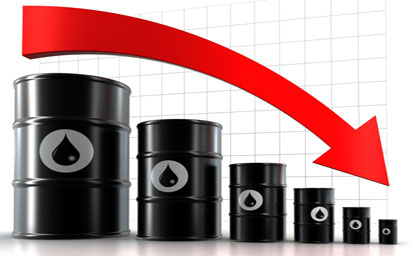 More hardship is predicted for asset managers in the Gulf after the price of oil sank to its lowest level since the financial crisis.
More hardship is predicted for asset managers in the Gulf after the price of oil sank to its lowest level since the financial crisis.
The decision of the Organisation of the Petroleum Exporting Countries (Opec) not to limit output led investors to fear a worsening of the oversupply that has caused oil to more than halve in value in the past year. The price of Brent crude is currently $43 a barrel having edged close to the $40 mark during intra-day trading.
Many analysts have criticised Opec’s inactivity, with particular blame for Saudi Arabia, the organisation’s most powerful member. However, writing before the Opec meeting on December 4, Pascal Menges, portfolio manager of a global energy fund for Swiss private bank Lombard Odier, explained Saudi Arabia was faced with a dilemma.
“If production is cut, market share is lost; but if Saudi Arabia don’t cut production, they and even worse for the other Opec members, will bleed money and face a massive fiscal deficit.”
With the oil price at such low levels, there is less money flowing into sovereign wealth funds in the Gulf region, which are the key clients for asset managers targeting the region.
Some sovereign funds are withdrawing money from external managers to help them meet their spending commitments during the period of low oil prices. According to its monthly report for October, the value of investments in foreign securities by the Saudi Arabian Monetary Agency was $446 billion at the end of September 2015, a decline of a fifth in the preceding 12 months and the lowest level since 2012.
©2015 funds global mena
